Poems Worksheets Activities With Answers for Ages 6-8
10 filtered results
-
From - To
Discover engaging poems worksheets activities designed specifically for children aged 6-8! Our collection features fun and educational materials that introduce young learners to the world of poetry. Each worksheet includes creative exercises that enhance reading skills, comprehension, and appreciation for poetic rhythm and rhyme. With answers provided for each activity, teachers and parents can easily facilitate learning and encourage creativity. These resources support early literacy development and make poetry enjoyable for young minds. Explore our printable worksheets and watch your child develop a love for reading and writing with these interactive activities centered around delightful poems!


Rhymes in Poems Worksheet
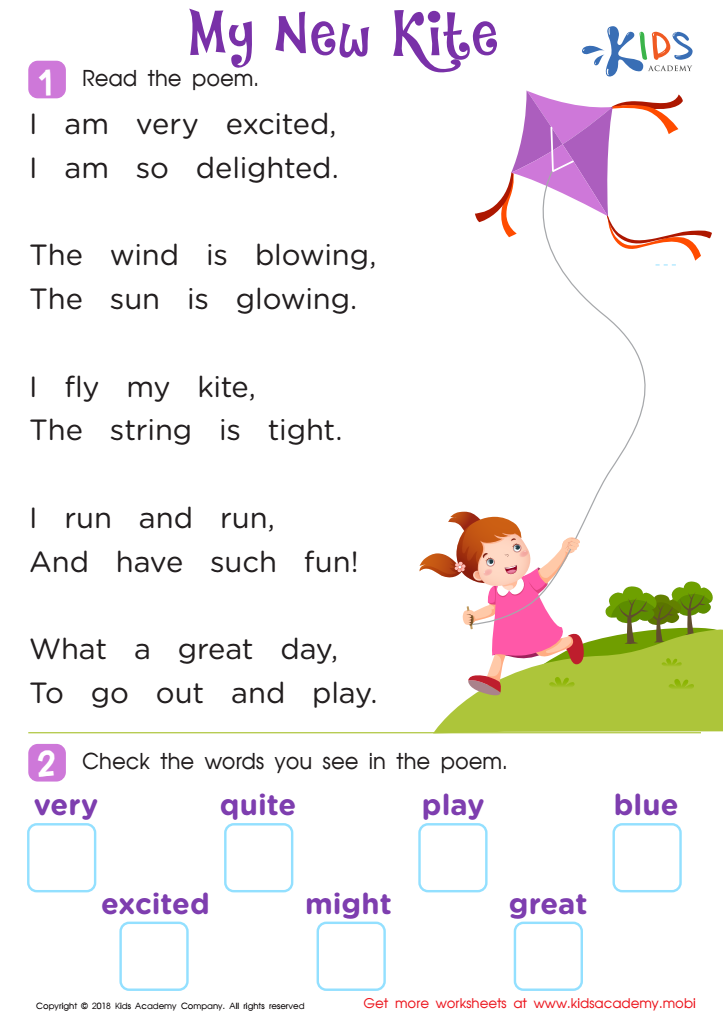

Poem: My New Kite Worksheet


Baa Baa Black Sheep Printable
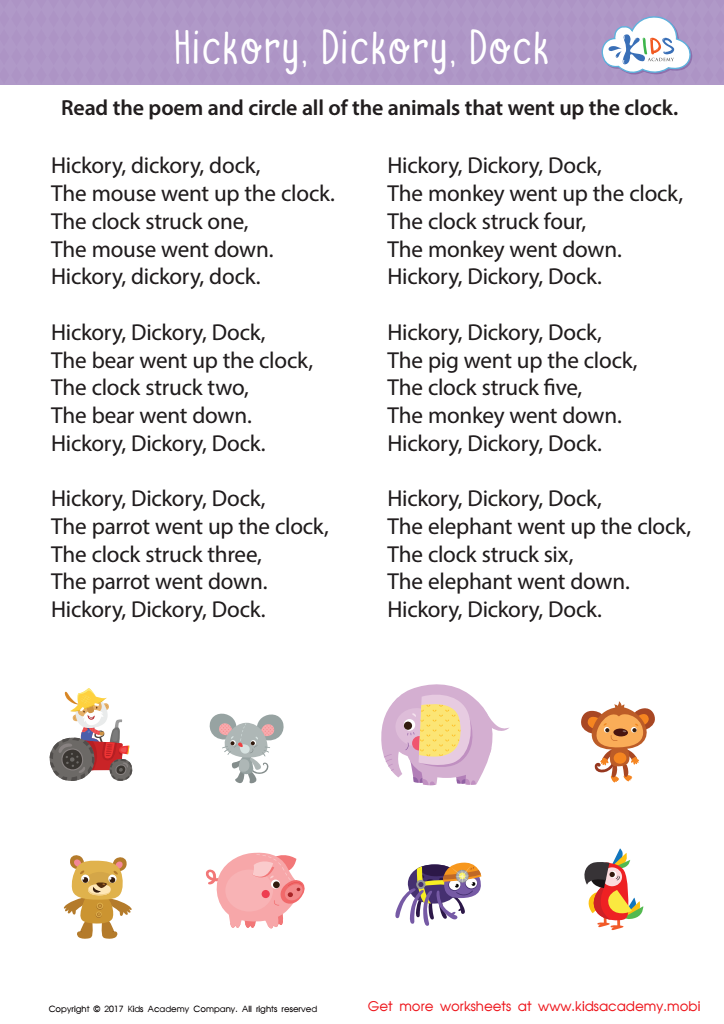

Hickory Dickory Dock Sequencing Worksheet
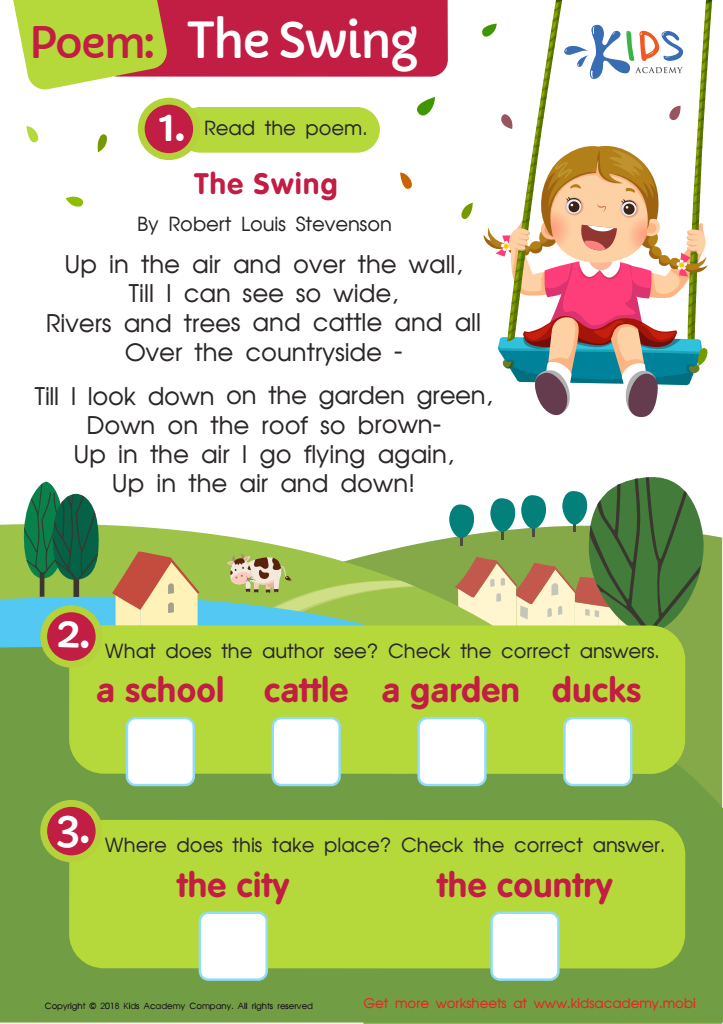

Poem: The Swing Worksheet
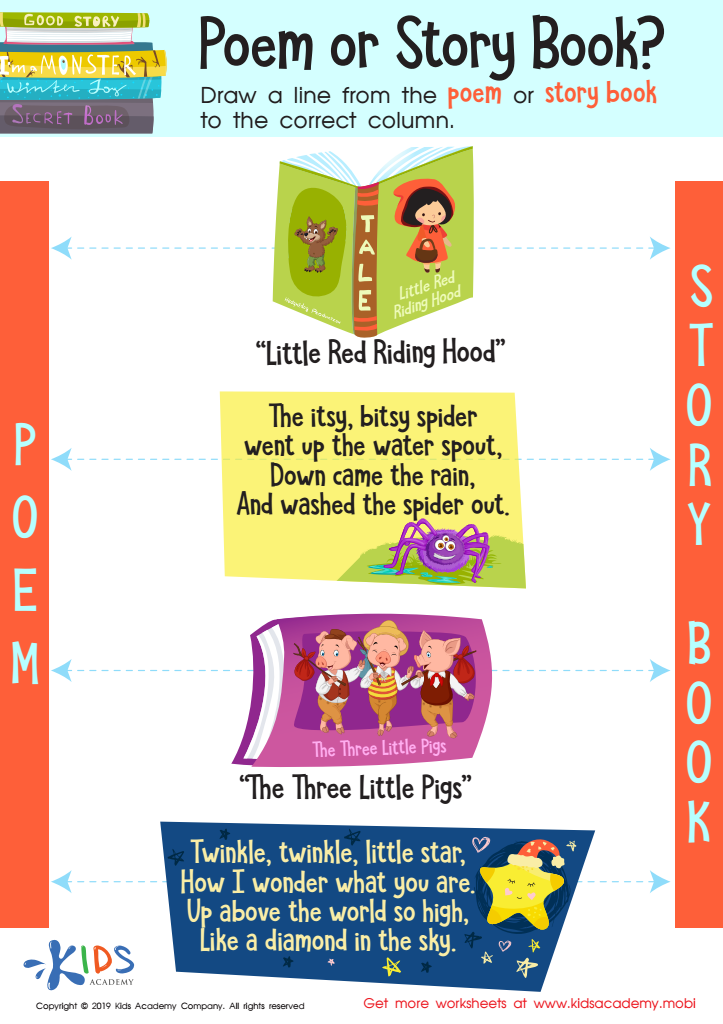

Poem or Story Book? Worksheet
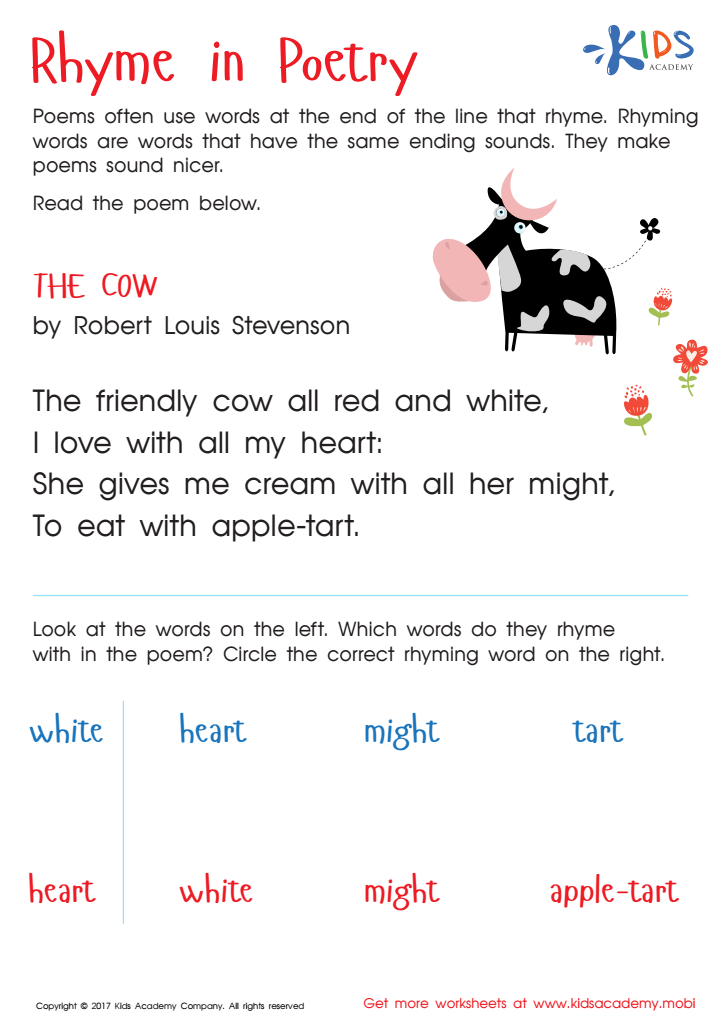

Rhyme In Poetry Worksheet
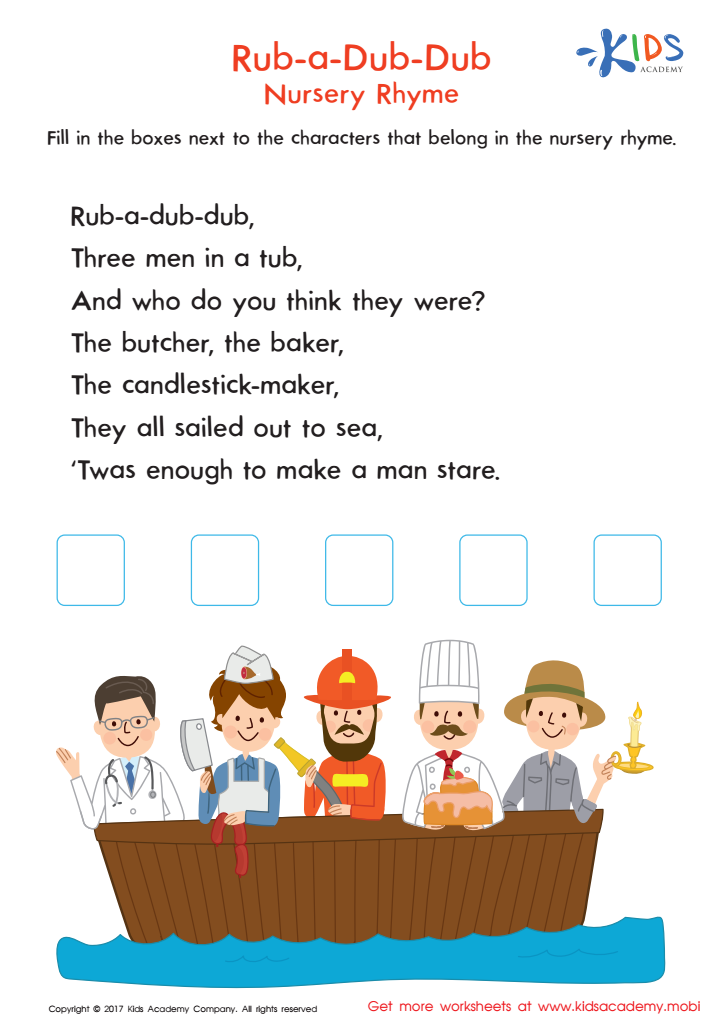

Rub a Dub Dub Printable
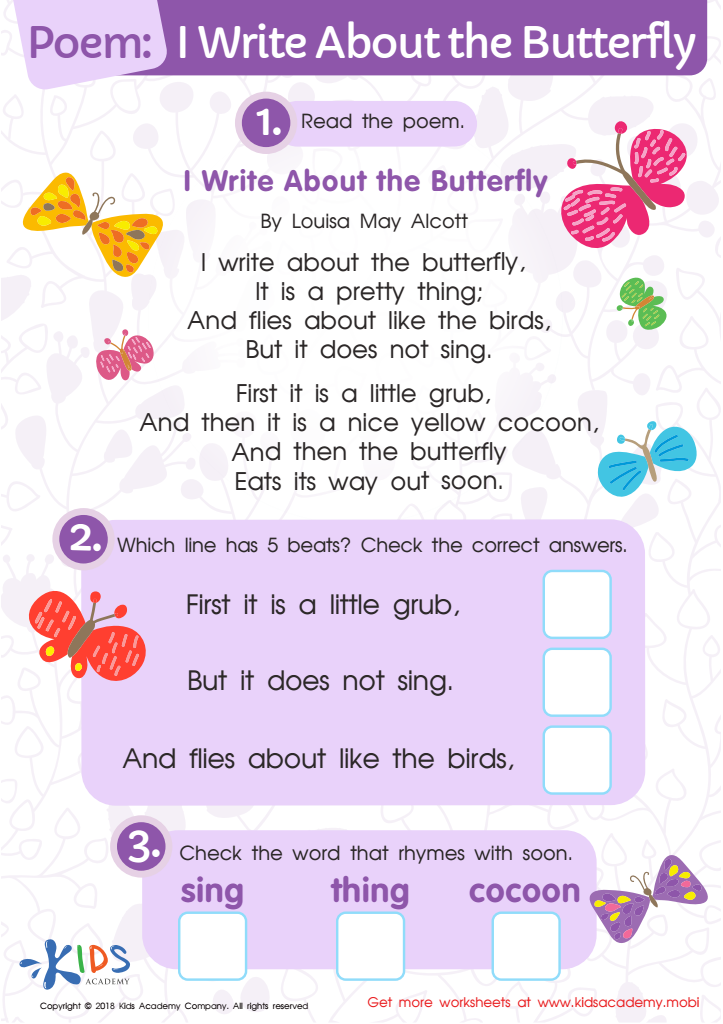

Poem: I Write About The Butterfly Worksheet
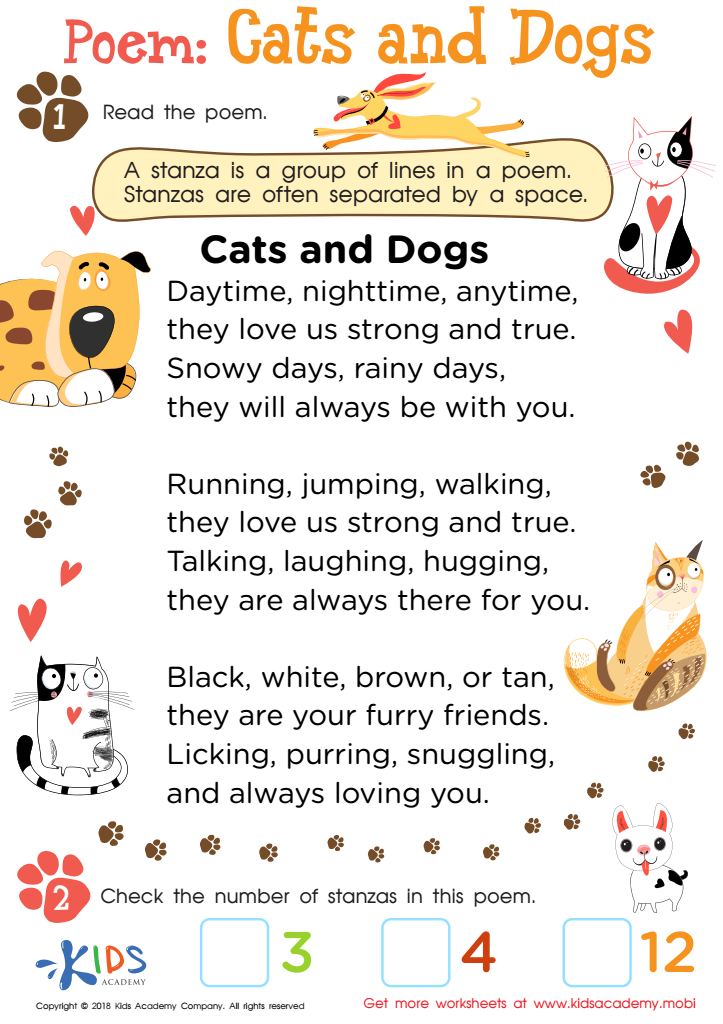

Poem: Cats and Dogs Worksheet
Parents and teachers should care about poem activities for ages 6-8 because they play a crucial role in nurturing children's language development, creative expression, and emotional intelligence. Engaging with poetry helps young learners expand their vocabulary and improve their reading comprehension, as poems often utilize rich imagery and rhythmic language that capture children's imaginations.
These activities encourage creativity, allowing children to express their thoughts and feelings in unique ways. As they create, analyze, or perform poems, they build confidence and become more comfortable with language manipulation. Moreover, interactive poem activities, such as call-and-response or group recitation, foster collaboration and enhance social skills as children share their interpretations.
Connecting poetry to broader themes—nature, friendship, or emotions—can also provide children with valuable life lessons, helping them navigate their feelings and experiences. Additionally, incorporating answers or discussion prompts allows adults to guide conversations, ensuring deeper understanding and connection.
Ultimately, poetry activities not only enhance literary skills but also contribute to a child's overall emotional, social, and cognitive development, making them a vital component of early education. Cultivating an appreciation for poetry can instill a lifelong love for literature in children, encouraging them to become avid readers and writers.
 Assign to My Students
Assign to My Students


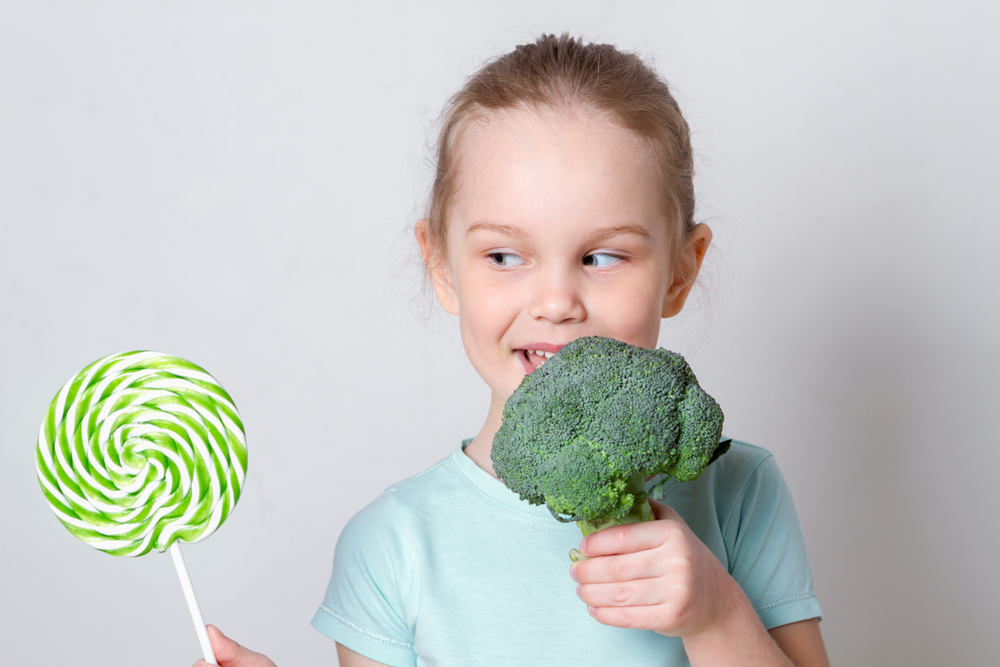

.jpg)


.jpg)







